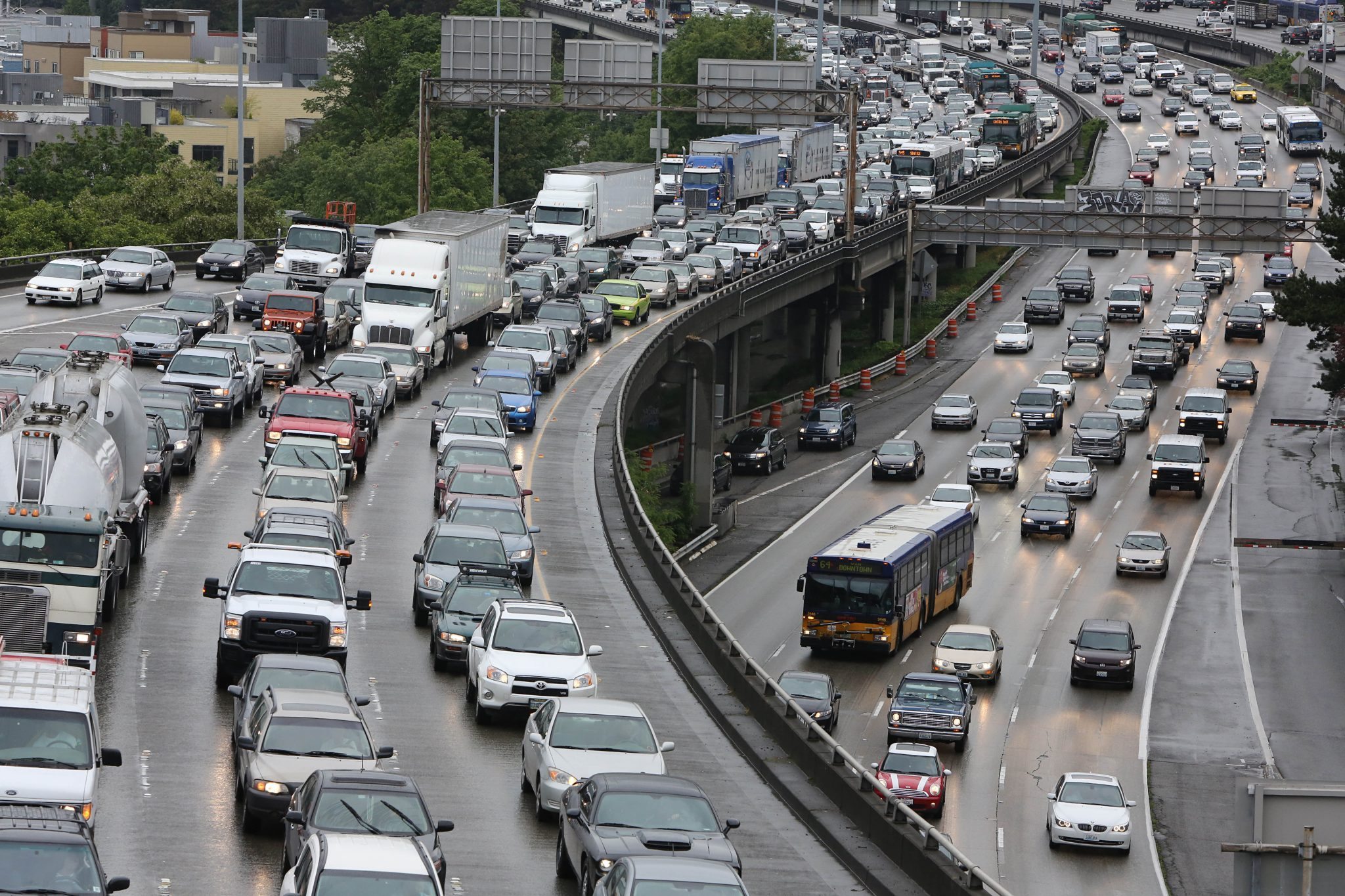Washington’s Transportation Commission voted unanimously this week to ask the Legislature for permission, and funding, to conduct a yearlong test to study a per-mile driving charge using volunteer drivers. Oregon has already carried out two similar tests. California approved its own test in September.
State consultants concluded after a two year long study costing $2 million that “climbing gas-tax proceeds have plateaued and are expected to head downward.” A more “fair, lucrative and dependable source of money” would be to charge drivers “based on miles traveled.”
Though the per-mile costs have yet to be determined, the consultants based their projections on a “1.9 cents-a-mile charge – to raise what the state’s gas tax of 37-1/2 cents per gallon does now.”
The Olympian reports that the state commission would offer drivers four different ways to pay,
-
A flat fee to drive unlimited miles over a time period.
-
A charge based on an odometer reading.
-
A charge based on miles tallied by a reporting device in the vehicle.
-
A charge based on miles tallied by an application on a smartphone.
The implementation of a per-mile driving charge would not mean the end of a gas tax. The Olympian,
Even with such a charge fully in place, consultants say drivers would keep paying taxes at the pump, because the state has to pay off money borrowed against gas-tax revenues and so residents of other states don’t drive for free on Washington roads. But the state would subtract drivers’ estimated gas-tax bill from what they owe for miles.
Commercial trucks would not be affected by the per-mile charge. Naturally, the plan would most burden rural communities who face greater travel distances on public roads.




